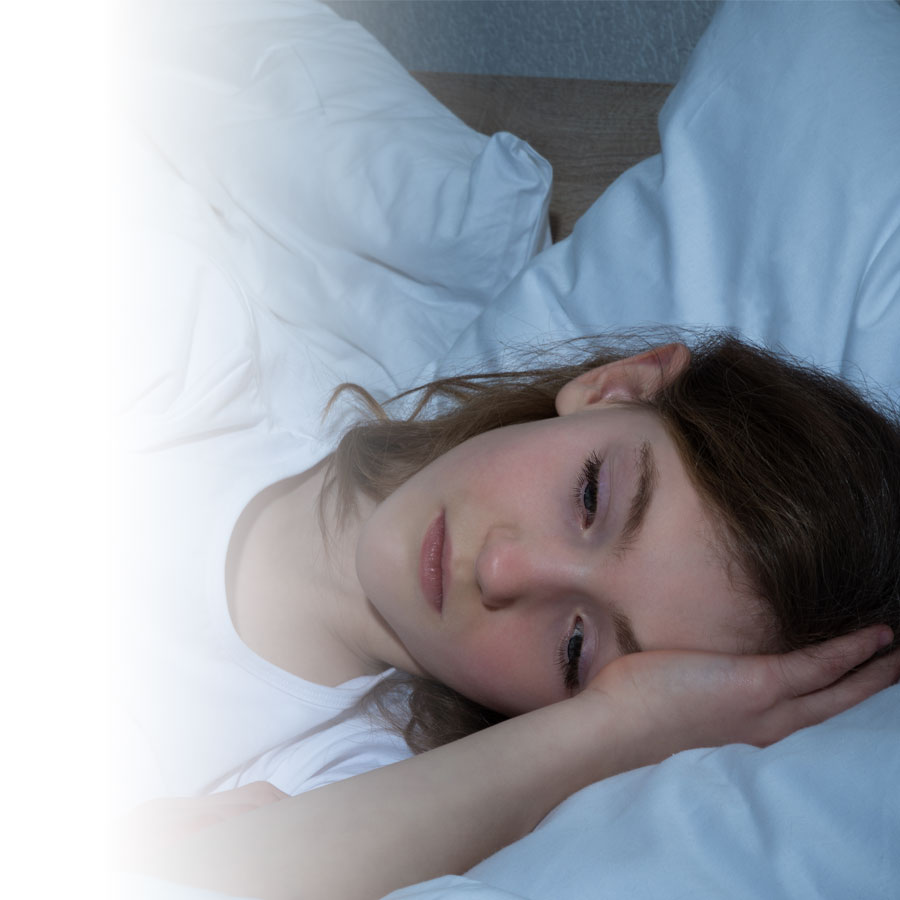Pinworms are intestinal worms that most often affect children. Find out how to prevent and treat this parasitic infection.
What are pinworms?
Pinworms are small worms that take up residence in the intestines of infected people. The medical name of these parasites is Enterobius vermicularis. Visually, they are white and small (about 1 cm in length) and shaped like a thread. An infestation by this type of parasite is called a pinworm infection. Anyone can fall victim to it. Only humans can be infested by pinworms.
Pinworms are transmitted by the involuntary ingestion of eggs of these small parasites. The eggs travel down to the stomach or small intestine, where they hatch. The larvae continue to migrate to the large intestine. In 2 to 6 weeks, they become adults and begin to reproduce. The female worms then move to the rectum and lay their eggs around the anus. The eggs can stick to objects (e.g. underwear, bedding or a couch) and survive outside the body for 2 to 3 weeks at room temperature.
Preschoolers and school-aged children are the population most at risk for pinworm infections. They are probably more likely to come into contact with pinworm eggs. Eggs are often ingested when a child puts their fingers in their mouth after touching a contaminated object or food (toys, clothing, bedding, etc.). Thumb sucking is a good example of a behaviour that increases the risk of infestation.
What are the signs and symptoms of pinworms?
Most children who have pinworms show no signs and do not complain of any symptoms. However, they may have a tendency to scratch in the anal area due to often intense itchiness. This is caused by the fact that female pinworms lay their eggs in this area.
Anal itching can be explained by irritation caused by the eggs and the sticky substance surrounding them. It is most unpleasant at night and may interfere with sleep. Excessive scratching can predispose to infection. In more severe cases, abdominal pain, nausea or vomiting may occur.
How can you tell if you have pinworms?
If symptoms are present, a test commonly known as the "Scotch Tape test" should be performed. It consists of sticking transparent tape around the anus during the night or first thing in the morning, before going to the bathroom or washing. The tape is then removed and examined to confirm the diagnosis.
If there are eggs around the anus, they will be trapped by the tape. The doctor or nurse will observe the sample under a microscope to check for eggs. Adult worms are sometimes found. Sometimes, the test must be repeated over several days to check for the presence of eggs or worms.
Parents can also try to detect the presence of adult worms in the child's perianal region with the naked eye. The chances of seeing worms increase if the test is done 2 to 3 hours after the child has fallen asleep.
It may be appropriate to use these methods if there has been contact with an infected person. If a diagnosis is confirmed, the daycare centre or school should be notified immediately.
How can pinworms be prevented?
When a household is infested with pinworms, a thorough and rigorous cleaning of potentially contaminated items such as clothing, bedding, stuffed animals and toys should be carried out.
The risk of pinworm reinfection is high because they can be transmitted from person to person through contact with contaminated objects or through self-infestation (transfer of eggs from the anus to the mouth). Here are a few tips to avoid a pinworm infection or reinfection.
- Keep fingernails short by trimming them regularly.
- Wash hands often with warm soapy water, paying special attention to the underside of the fingernails.
- Always do this after using the toilet or changing a diaper, and before handling food.
- Take a shower or bath when you get up and thoroughly cleanse the anal area.
- Wash clothes, towels and sheets regularly.
- Vacuum floors and high-risk surfaces (e.g. couch).
- Avoid scratching your buttocks or crotch.
- Do not bite your nails or put your fingers to your mouth unnecessarily.
How should pinworms be treated in children?
If a diagnosis is confirmed, the person infected with pinworms must take an antiparasitic drug to get rid of them. Other people living in the same household must also be treated. The transmission of pinworms to family members is common.
Treatment is done orally with a prescribed or over-the-counter medication. To obtain treatment without a prescription, speak to your pharmacist, who will calculate the dose based on body weight. A single dose is taken and then the treatment is repeated 14 days later. The pharmacist will give you the advice you need to optimize the treatment and reduce the risk of reinfection.
Speak to your pharmacist for additional information about pinworms and how to treat them.

